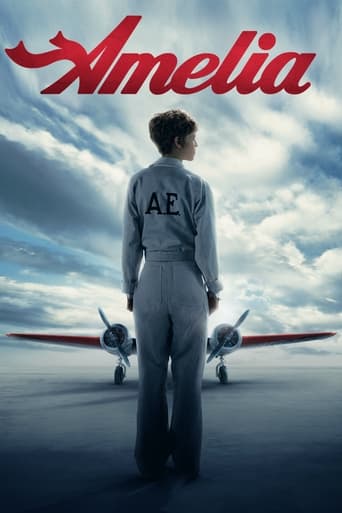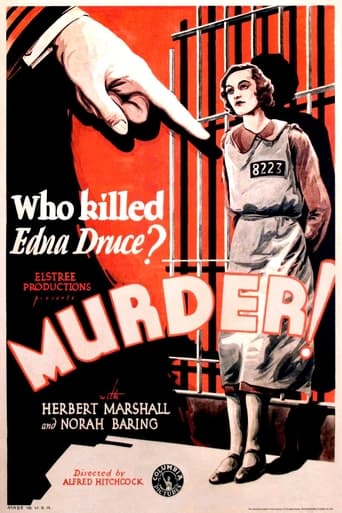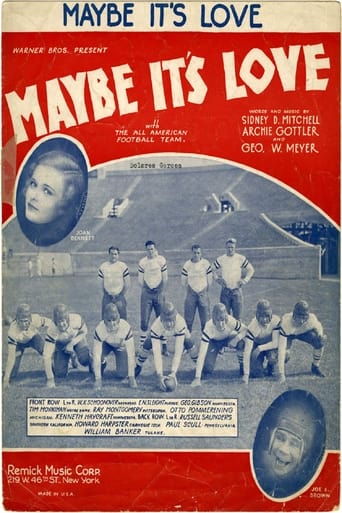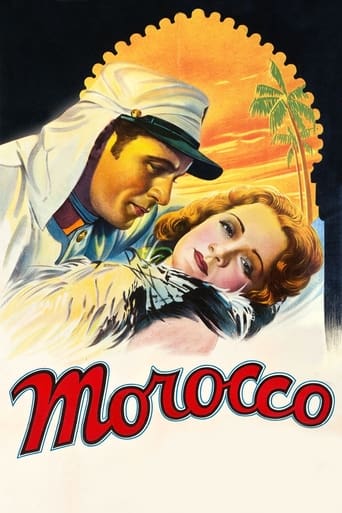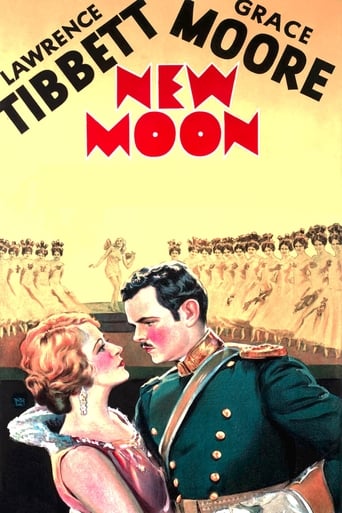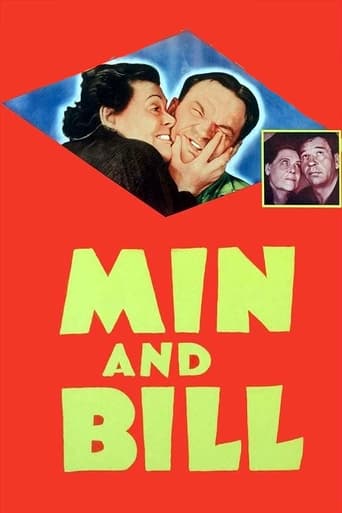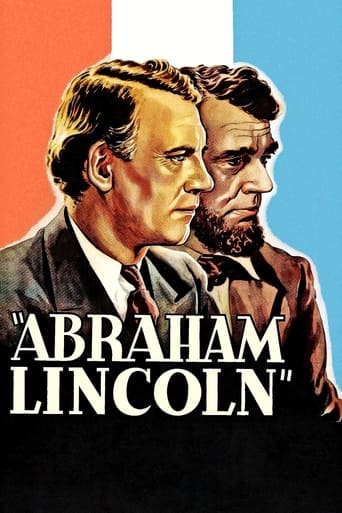


Abraham Lincoln
A biopic dramatizing Abraham Lincoln's life through a series of vignettes depicting its defining chapters: his romance with Ann Rutledge; his early years as a country lawyer; his marriage to Mary Todd; his debates with Stephen A. Douglas; the election of 1860; his presidency during the Civil War; and his assassination in Ford’s Theater in 1865.
-
- Cast:
- Walter Huston , Una Merkel , William L. Thorne , Lucille La Verne , Helen Freeman , Otto Hoffman , Edgar Dearing


Similar titles

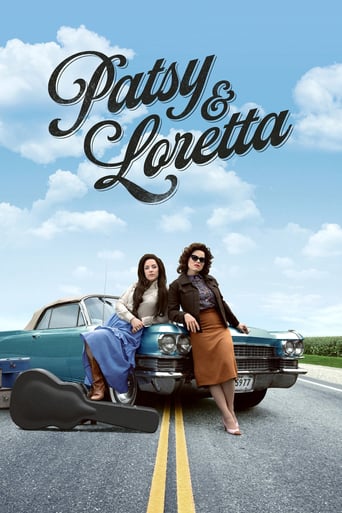


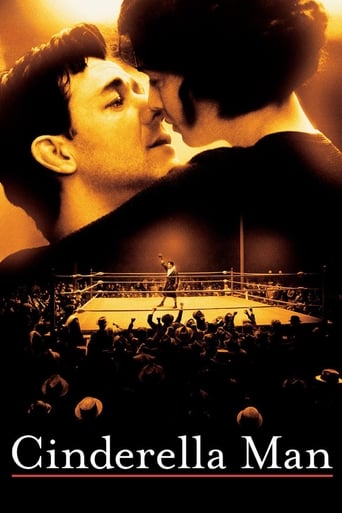
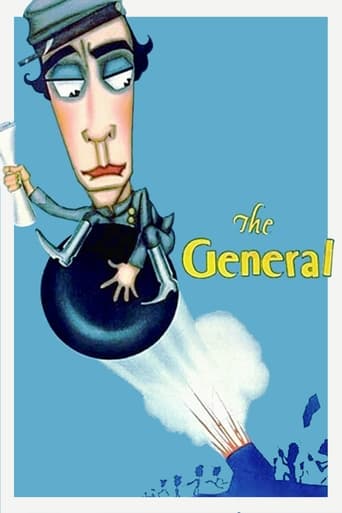
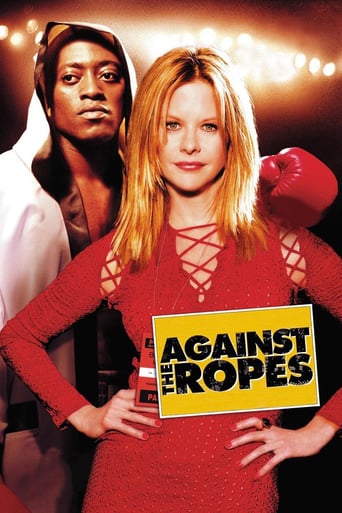
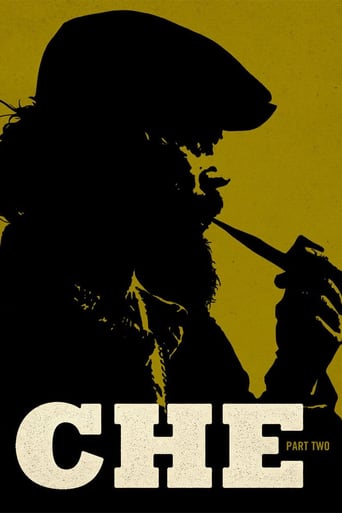
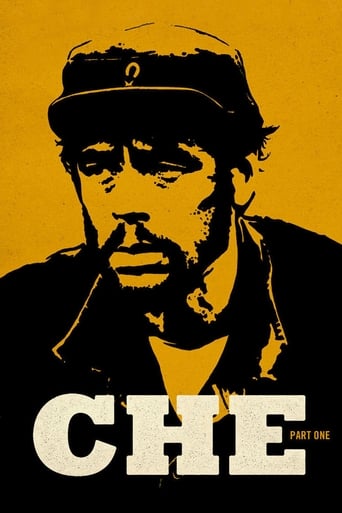
Reviews
You won't be disappointed!
Expected more
Best movie ever!
The story, direction, characters, and writing/dialogue is akin to taking a tranquilizer shot to the neck, but everything else was so well done.
Abraham Lincoln is a 1930 film based on the life of the sixteenth president of the United States of America. The story follows Lincoln from his birth, through adulthood, and into the hardships of his presidency. The film is a dramatized version of Lincoln's biography, and essentially goes through every important event in Lincoln's life.One of the best parts of the film is the uncanny resemblance between the lead actor and Abraham Lincoln. This doppelganger effect helps the actor achieve a very convincing Lincoln. Some of the humor in the film still holds up and you'll get some laughs from the dialogue. It is also nice to see such a friendly political debate between Abraham Lincoln and Stephen Douglas. The point versus point format of the debate in the film appears more realistic and civil than what we have in reality.Unfortunately, there is much about the film that can be criticized. There are spots of bad acting throughout, such as the "I'm angry" folding of the arms and pouting bottom lip routine. There are awkward camera stares by the characters that are meant to accentuate their points, but instead are confusing and do anything but accentuate. Lincoln said three times that he wanted to preserve the Union, and then looks directly at the camera and practically yells it. Is he talking to me or is there a character directly behind the camera he is speaking to? There are corny, melodramatic moments, especially between Lincoln and his first wife. The movie moves from one event to the next at a break-neck speed, never allowing the story or characters to develop. His ascension to presidency is clumsily foreshadowed in his early years repeatedly. Far too often. Not to mention the fact that Lincoln's wife, Mary Todd, is completely insufferable.The cynicism of the Mary Todd character is not based on any historical inaccuracies, it is the fact that we are shown her vapid and selfish personality and it is never addressed or resolved. We know that she was pursuing Lincoln before she met him due to his potential wealth and power. But why does Lincoln like her? For that matter, why does Lincoln have the political feelings that he is so adamant about? The film never addresses the conflicts and thoughts of the characters. Of course, we can learn what has happened in history ourselves, but the movie itself does nothing in this regard, and honestly should have been the basis of the story. The audience knows the historical chronological events, but when the "why" of the matter is dropped, the film loses all feeling and meaning. Instead of developing the character of Lincoln, we are given a checklist of important events, which are then dramatized.I do not recommend this film to anyone. If you want to explore the personality and life of Abraham Lincoln, you're not going to get it here. If you want a civil war movie, you're not going to get that either. If your intent is to delve into the slavery debate at the time, that doesn't exist in this film. Perhaps you're simply interested in Lincoln's personal life and his familial relationships. You won't get that either. I hate to say it, but this is definitely one of the worst Abraham Lincoln films.
A fair amount of footage and sound has apparently been lost, and I felt cheated after watching the film in its most restored state. The most glaring omission is that there was nothing about Gettysburg or probably the most famous speech that any president has ever made, especially with regards that the address was only two minutes long.Another bone of contention was that any African Americans in any semblance of prominence were actually actors with black face. While understanding it was a thing to do in that era, the scenes still left me shaking my head. There were nice moments, including Robert E. Lee in his tent. But enough drab moments suggest to me that D.W. Griffith's heart wasn't truly in the production of his film.
It refuses to fly. The whole thing constitutes 90 minutes of parasitic drag.General MacLellan might have directed this. It has "a case of the slows." It begins with Abraham Lincoln's birth. There are extensive scenes of Lincoln (Walter Huston) tentatively courting Ann Rutledge (Una Merkel). They both move and speak slowly. The flirtation drags along. Merkel gets sick and dies with Huston by her side. She has long slow last words -- many long slow last words. Nine years later, John Ford zipped through all this in a few minutes. We didn't even see Ann Rutledge die, just a half frozen river accompanied by a few tragic chords in Al Newman's score.I understand that D. W. Griffith practically invented the grammar of the moving picture -- the cross-cutting, the invisible editing, the close up -- but he couldn't do a thing with this Steven Vincent Benet script, nor with the images we see on the screen.The close ups are an embarrassment. The actors are made up so emphatically that their lips and eyes might be seen from the most distant row of the balcony.One wonders whether Griffith really believed that Abraham Lincoln was such a great president. After all, from the director's point of view, Lincoln was on the wrong side of the Civil War. But maybe Griffith did admire Lincoln. Maybe he thought, "Well, at least Lincoln gave us Thanksgiving." But nothing can excuse a film that seems to have been shot in a vast tank of molasses.There's something to be said for quitting while you're ahead.
Famous silent film director D. W. Griffiths gave us this plodding straightforward historical biopic of the sixteenth president of the United States. As one of Griffiths' few attempts at 'talkies', Abraham Lincoln is by no means outstanding. Like other films of the period, some of the actors (especially Ian Keith as J.W. Booth and Walter Huston as Lincoln) overact their gestures and facial expressions. While others overcompensate for the new medium and seem to play their roles too subtly (Una Merkel's Ann Rutledge).The film tells the story of Lincoln's rise from humble roots to become one of the most accomplished American orators of all time, while retaining the plain-spoken character that endeared him to the nation. The film uses an appreciative tone, and does not fairly represent Lincoln's considerable political acumen and the very calculated campaign strategies which put him in office. Instead, Griffiths chose to present Lincoln as the good, but somewhat melancholic president we know him to have been.The story is told in a series of vignettes depicted in scenes of about equal length - probably a limitation of the film technology available at the time. This mode of presentation does nothing to reduce the boredom factor. Most of the lines are pronounced very clearly with lengthy unnatural pauses between each line. Clearly, Griffiths was a little uncomfortable in the new sound medium and did not wish to experiment a great deal with it. The film picks up a bit as the civil war becomes its main focus. And some of the battle scenes are classic Griffiths' near-silent cinematography. However, even this is somewhat muted by the scenes of the president brooding over the dispatches he receives from his generals describing defeat after defeat.Recommended for early film buffs and young Lincoln afficionados only

